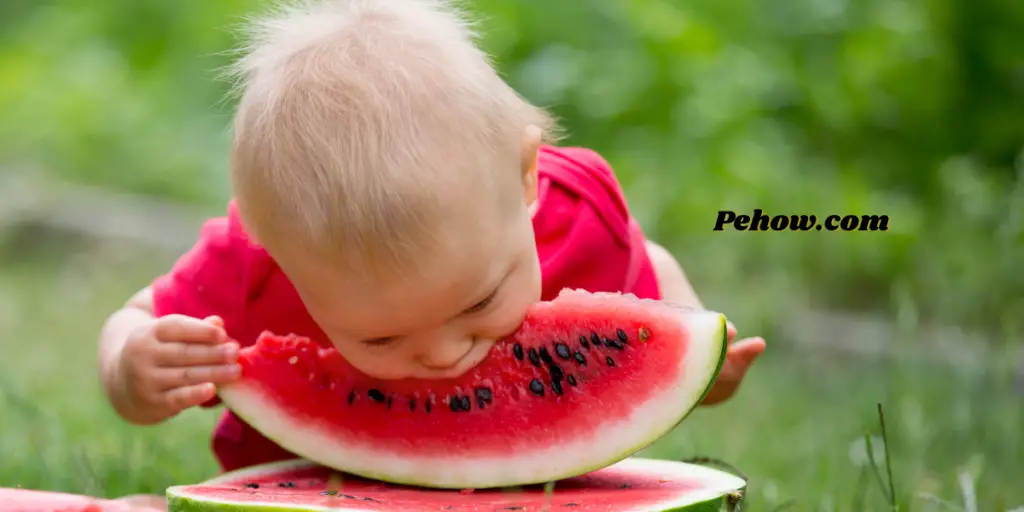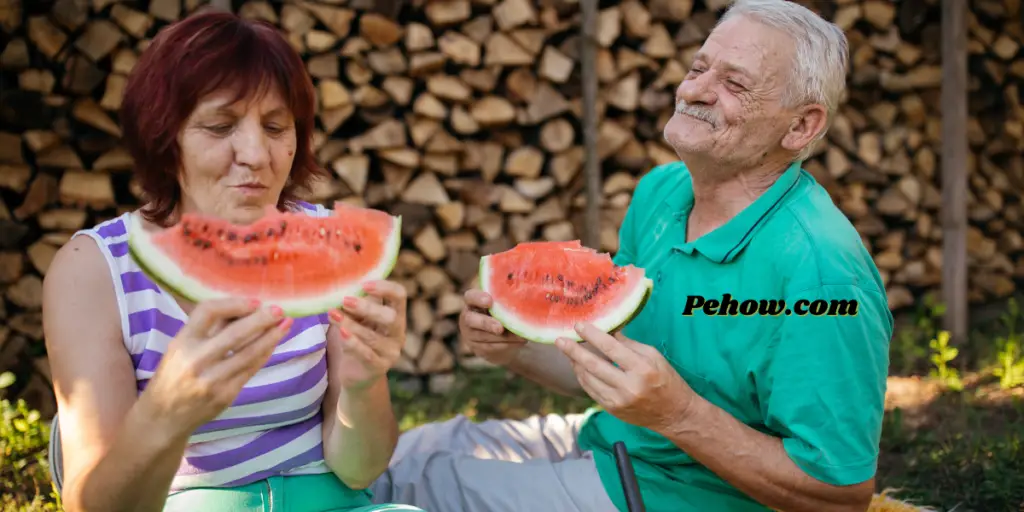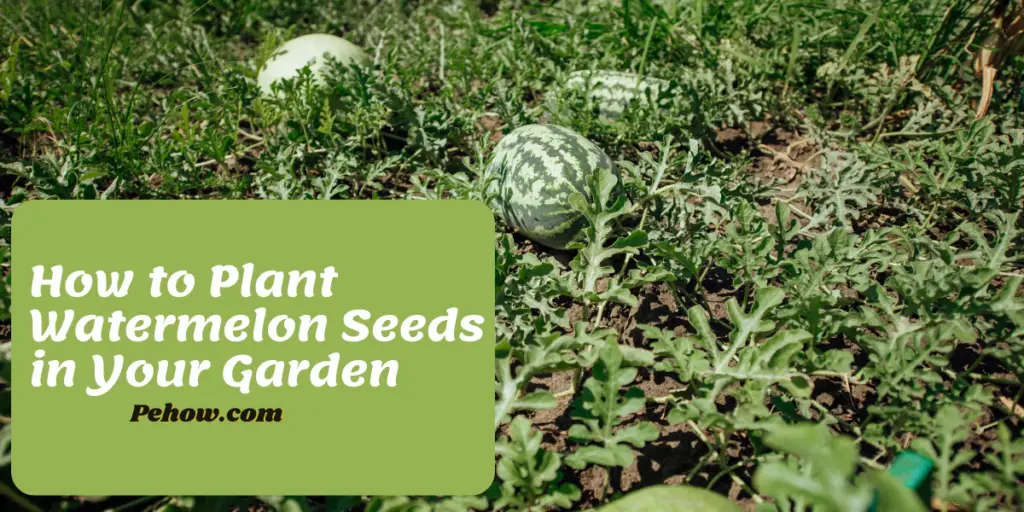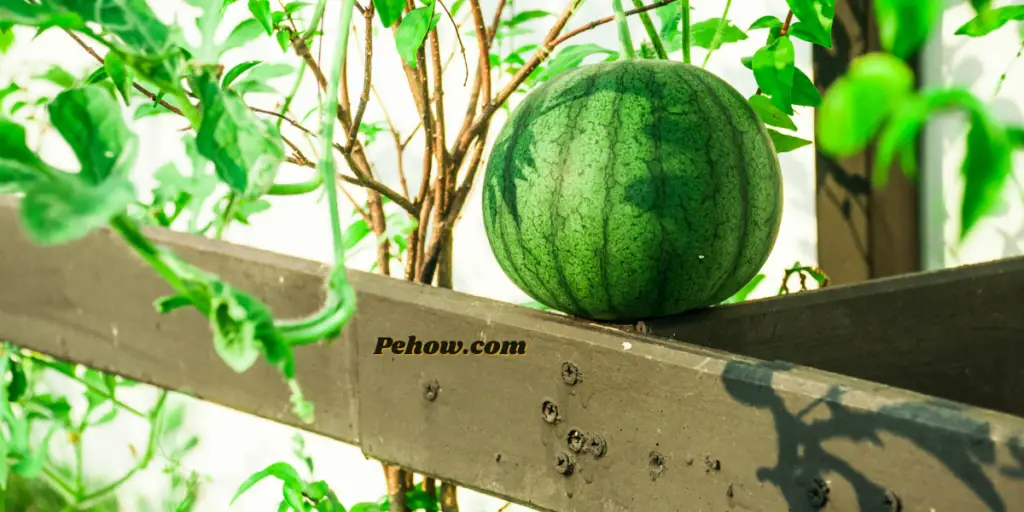Oh, I remember my childhood while answering this question. I used to think, “If I eat watermelon seeds, a watermelon will start growing in my stomach!” My friends and I would have competitions to see who could eat the most watermelon seeds. We would sit around and spit the seeds into a pile and see who had the most. Of course, we were just kids and didn’t know any better.
What are you thinking? No, a watermelon will not start growing in your stomach if you eat watermelon seeds! This is just a childhood misconception. The seed will go through your digestive system and come out the other end – unharmed and unchanged. So don’t worry about swallowing a few watermelon seeds this summer – they won’t hurt you! Just enjoy the delicious watermelon!
In this article we will discuss some things that you have never heard from anyone before about can a watermelon seed grow in your stomach (No, Childhood misconceptions). Let’s explore some interesting facts and find out the answer to this question together!
What is a watermelon seed?

A watermelon seed is a small, black seed that comes from the fruit of the watermelon plant. The watermelon plant is a vine that grows in tropical and subtropical regions around the world. Watermelons are usually red or green on the outside, with pink, red, or orange flesh on the inside. The seeds are black and have a hard, white casing.
Watermelon is in high demand during the summer months, and as a result, the price of watermelon can fluctuate.
Watermelons are grown commercially for their juicy flesh, which is high in vitamins A and C. The seeds are also edible and have a nutty flavor. Watermelon seeds can be roasted and eaten as a snack, or they can be ground into flour that can be used in baking.
What can happen if you swallow a watermelon seed

Watermelon seeds can pass through your digestive system unscathed, but if they happen to get lodged in your throat or esophagus, they can cause blockages. If a watermelon seed does get stuck in your throat, you may have difficulty breathing and will likely need medical attention. In some cases, if a watermelon seed is inhaled into your lungs, it can cause an infection.
While unlikely, it is possible for a watermelon seed to take root in your stomach lining and grow into a plant. However, the acidic environment of your stomach would make it difficult for the seed to germinate. If you’re worried about swallowing a watermelon seed, you can always remove them before eating.
How to avoid swallowing watermelon seeds
Watermelon seeds are very small in shape and can easily be swallowed while eating watermelon. It is advised to remove the seeds before consuming watermelons. There are a few ways to avoid swallowing watermelon seeds:
spitting out the seeds while eating

If you can’t avoid swallowing the watermelon seeds, then spit them out as you eat. This will help to minimize the number of seeds that enter your stomach.
eating around the seeds
Carefully eat around the watermelon seeds. Try to avoid biting into them directly. This will help to reduce the number of seeds that are swallowed.
removing the seeds before eating
The best way to avoid swallowing watermelon seeds is to remove them before consuming the fruit. You can do this by cutting the watermelon into slices and then removing the seeds with a spoon or your fingers. This will help to ensure that you don’t accidentally swallow any seeds.
avoiding eating the watermelon flesh near the seeds
When cutting up a watermelon, avoid eating the flesh that is close to the seeds. This will help to reduce the amount of seeds that you consume.
eating watermelon with a seedless variety
If you are worried about swallowing watermelon seeds, then you can opt for a seedless variety. These watermelons have had the seeds removed and can be eaten without worry.
Can seeds survive digestion?

It is a common phenomena for people to accidentally or intentionally ingest seeds. Most of the time, these seeds will pass through the digestive system without causing any harm; however, there are some instances where seeds can cause problems.
The most notable example is when watermelon seeds get stuck in the appendix, which can lead to appendicitis. While it is possible for a seed to survive the stomach’s acidic environment, it is very unlikely that the seed will be able to germinate and grow into a plant.
Does stomach acid dissolve watermelon seeds?

Watermelon seeds can survive stomach acid, but they won’t germinate and grow. The reason for this is that the stomach is a very acidic environment with a pH of around 2.0. This is not conducive to plant growth.
However, if you were to plant a watermelon seed in soil with the right conditions, it would germinate and grow into a watermelon plant.
So, if you’re wondering if you can grow a watermelon in your stomach, the answer is no. But don’t worry, eating watermelon seeds is perfectly safe and won’t cause any harm to your body.
Does watermelon show up in poop?

No, watermelon does not show up in poop. The seeds will pass through the digestive system and be eliminated in the stool. However, if you eat a lot of watermelon, you may notice more seeds in your stool than usual.
This is because the body can only digest a certain amount of watermelon at one time. Eating large amounts of watermelon can also cause stomach pain and diarrhea.
What happens if you eat too much watermelon?
Watermelon is a fruit that can be eaten in different ways. You can eat the fruit, or you can eat the seeds. If you eat too many watermelon seeds, they can start to grow in your stomach.

This can cause a lot of pain and can even be dangerous. If you think you have eaten too many watermelon seeds, it is important to see a doctor right away.
How to Plant Watermelon Seeds in Your Garden

Watermelons are a refreshing and healthy summer fruit, and growing your own can be both fun and rewarding. If you’re interested in planting watermelon seeds in your garden, there are a few things you’ll need to know to ensure a successful crop.
choose the right type of seed
There are three types of watermelon seeds: seeded, seedless, and mini. If you want to grow a traditional watermelon with large, black seeds, you’ll need to plant a seeded variety.
Seedless watermelons are the most common type grown today, and can be either red or yellow. If you’re looking for something different, mini watermelons are a fun option that can be grown in containers.
select a sunny spot
Watermelons need full sun to grow, so choose a spot in your garden that gets at least 8 hours of sunlight each day. The soil should also be well-drained and rich in organic matter. If your soil is poor, consider amending it with compost before planting.
Choose the right soil
Watermelons need well-drained soil in order to grow properly. If your garden soil is heavy and wet, mix in some sand or gravel to help improve drainage before planting. The soil should also be rich in organic matter, so if your soil is poor, consider adding compost before planting.
plant the seeds
Watermelon seeds can be direct-sown in the garden after all danger of frost has passed. Sow the seeds 1-2 inches deep and space them 2-3 feet apart. Once they germinate and begin to grow, you can thin the seedlings to one plant every 4-6 feet.
water regularly
Watermelons are a warm-weather crop, so they need consistent watering to produce a good harvest. Water the plants deeply and regularly, especially during dry spells. Mulching can also help reduce evaporation and keep the roots cool.
fertilize as needed
Watermelons are heavy feeders, so they will need to be fertilized every few weeks during the growing season. Use a balanced fertilizer and apply it according to package directions.
Harvesting Your Watermelon Crop
Watermelons can take anywhere from 50-100 days to mature, depending on the variety. The fruits are ripe when the tendrils on the vine nearest the fruit begin to turn brown and dry up. You can also tell a watermelon is ripe by thumping it—it should sound hollow.
How to store watermelon seeds

Watermelon seeds can last for a long time if they are stored properly. You can store them in a cool, dry place in an airtight container. If you live in a humid climate, you may want to store the seeds in the refrigerator to keep them from going bad. You can also freeze watermelon seeds to extend their shelf life.
If you can’t store watermelon seeds in a cool, dry place, you can still grow them. You just need to be careful not to let the seeds get too wet or they will rot.
How to protect your watermelon plant from rain

Watermelons are a tropical fruit and can’t tolerate cold or even cool weather. If you live in an area with late spring or early summer rains, you’ll need to take steps to protect your watermelon plants from the wet weather. Watermelons are very sensitive to moisture and can develop diseases if they get too wet.
You can protect your watermelon plants from rain by covering them with tarp or plastic sheets. Make sure the coverings are secured so they don’t blow away in strong winds. You can also build a simple frame to support the coverings over the plants.
If you can’t keep the plants dry, you can still harvest healthy fruit by picking the watermelons before they get too wet. Watermelons that are allowed to stay too wet can develop rot and mold, which can ruin the fruit.
In general, it’s best to avoid getting the leaves and stems of the plant wet, as this can encourage disease. If you do get the plants wet, be sure to dry them off as soon as possible.
Can you eat raw watermelon?
Watermelons are not only safe to eat raw, but they’re also a healthy and delicious way to enjoy this summer fruit. Watermelon is made up of 92% water, so it’s a great way to stay hydrated, and it’s also low in calories and high in vitamins A, B6, and C.
As for the seeds, they’re actually safe to eat, too. Watermelon seeds are a good source of protein, fiber, and minerals like magnesium and zinc. So if you accidentally swallow a few while enjoying a slice of watermelon, don’t worry — they won’t harm you. In fact, they may even be good for you!
The Summary
Watermelons are a delicious and healthy summer fruit, and if you’re lucky enough to have a garden, you can grow your own. In this article, we’ve provided tips on how to plant watermelon seeds, care for the plants, and harvest the fruit.
We’ve also answered some common questions about growing watermelons. So if you’re thinking about growing your own watermelons, now is the time to start planning. With a little care, you can enjoy fresh, homegrown watermelons all summer long.
I hope you enjoyed this article. If you have any questions or comments, please feel free to leave them below. And if you want to learn more about growing fruits and vegetables, be sure to check out our other gardening articles. Thanks for reading!


